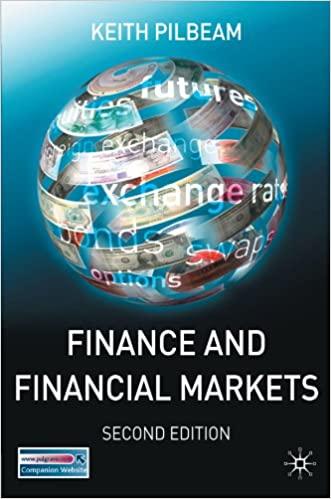Question
P. One: Suppose you prefer receiving $5,000 today over $10,000 in 5 years. Which of the following is the LEAST likely to be a reason
P. One: Suppose you prefer receiving $5,000 today over $10,000 in 5 years. Which of the following is the LEAST likely to be a reason behind your preference?
a. You have good opportunities to invest the money today
b. You are worried about high inflation
c. You are worried about not being paid the $10,000 in full
d. You have weak time preference
P. Two: Suppose you would like to save some money and you are comparing two savings accounts. Account A offers a high interest rate with annual compounding. Account B offers a lower interest rate with weekly compounding. Which one is better?
a. Account A because it is offering a higher annual interest rate.
b. Account B because it is offering more frequent compounding.
c. You need to calculate their EARs and pick the lower one.
d. You need to calculate their EARs and pick the higher one.
P. Three: Suppose you deposited $5,000 in a savings account. If you have $5,500 in the account after 2 years, what annual interest rate did you earn on your savings? Answer in percentage terms rounded to two decimal places.
P. Four: What is the future value of $20,000 after 12 years earning 5% compounded monthly? Round to the nearest cent.
P. Five: If you'd like to accumulate $50,000 in 9 years by investing in an account earning 4% compounded weekly, how much would you need to deposit today? Round to the nearest cent.
P. Six: Suppose you deposited $1,000 into an account earning 5%. How long would it take for the balance to grow to $1,500? Answer in years rounded to one decimal place.
Step by Step Solution
There are 3 Steps involved in it
Step: 1

Get Instant Access to Expert-Tailored Solutions
See step-by-step solutions with expert insights and AI powered tools for academic success
Step: 2

Step: 3

Ace Your Homework with AI
Get the answers you need in no time with our AI-driven, step-by-step assistance
Get Started


